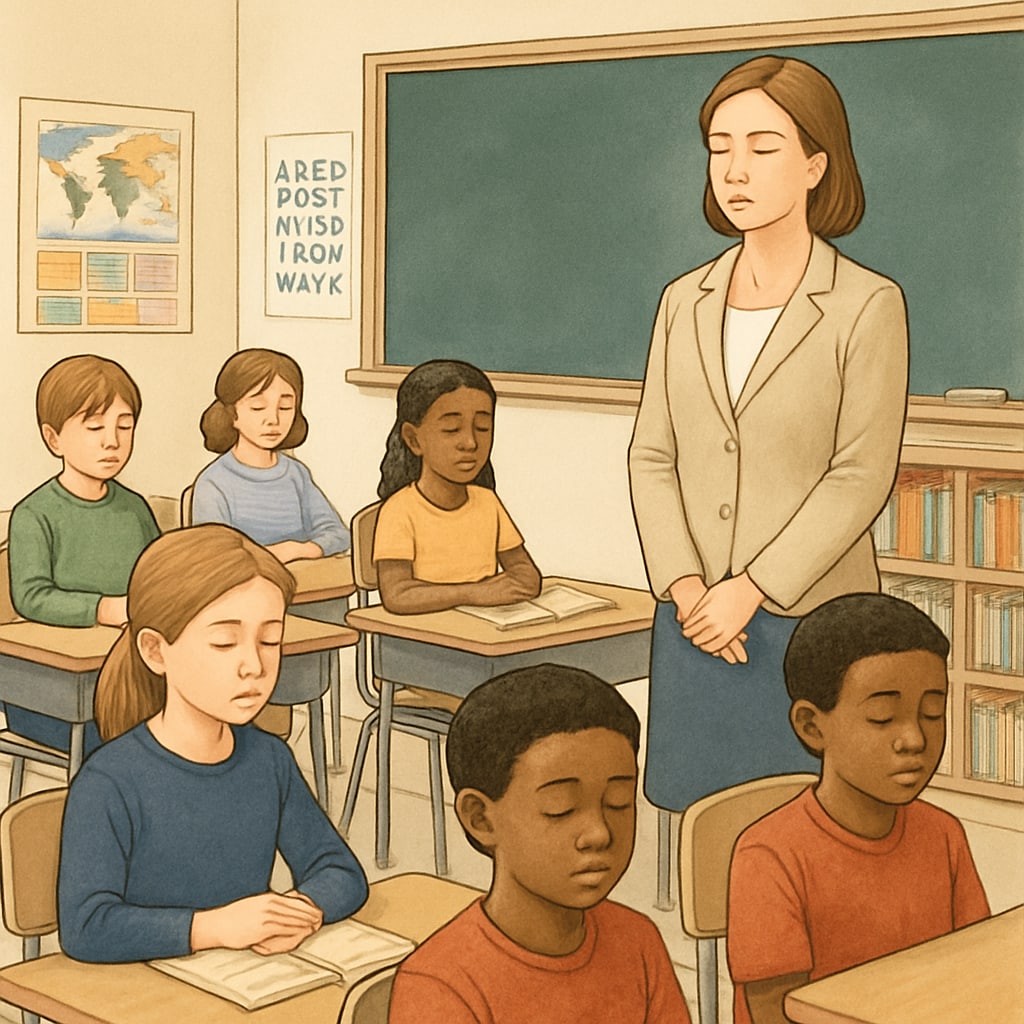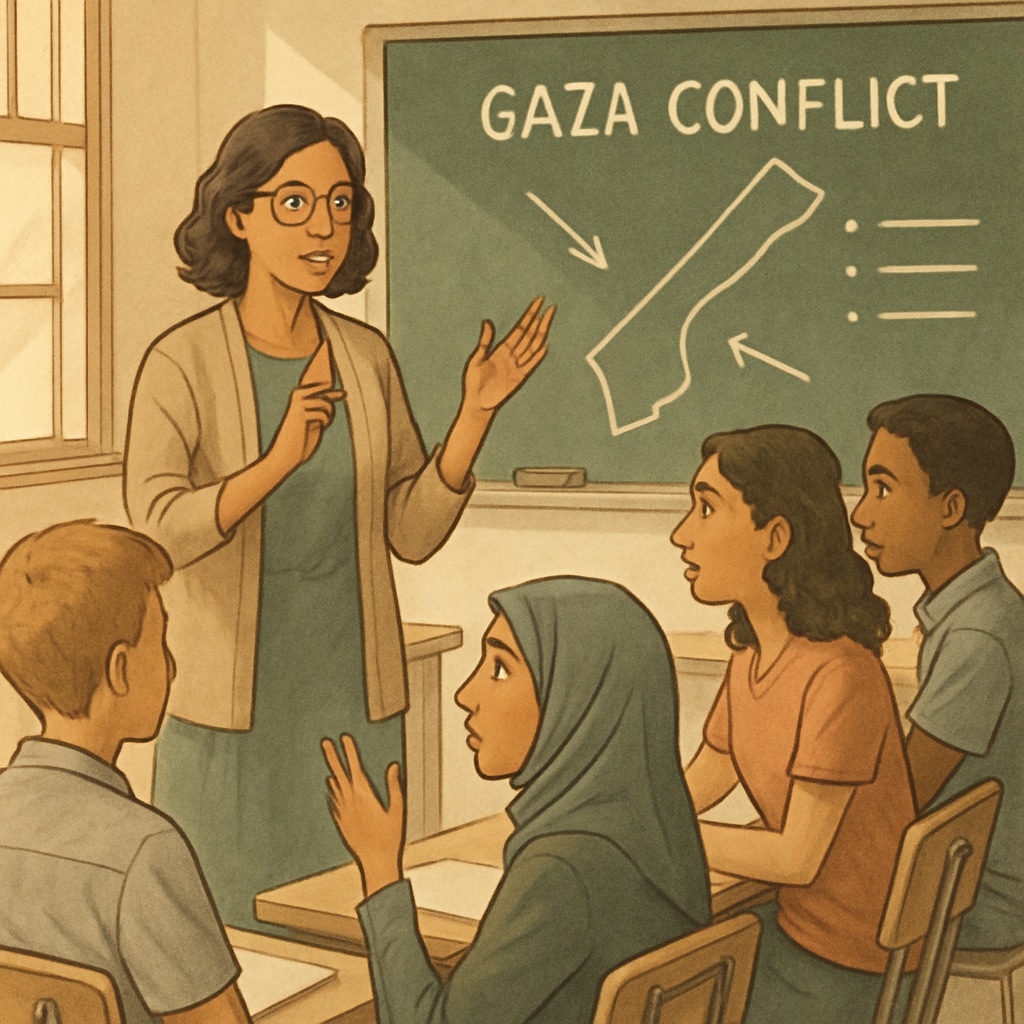The recent decision by some schools to generalize a moment of silence initially intended for Gaza conflict victims into a broader tribute to all global war casualties has sparked significant debate. While proponents argue that this approach fosters inclusivity, critics suggest it reflects a deliberate attempt to avoid controversy. This article explores the implications of such “generalized mourning,” examining the underlying challenges of political avoidance, its impact on education, and the broader question of how schools address sensitive political topics.
Understanding the Shift: From Specific to Generalized Mourning
The original intention behind the moment of silence was to honor victims of the ongoing Gaza conflict. However, in an effort to maintain political neutrality, many schools broadened the focus to include all global war victims. This shift raises important questions: Is this a thoughtful way to unite communities, or does it dilute the significance of specific tragedies?
One key reason for this shift is the fear of controversy. Discussing politically charged topics like the Gaza conflict can polarize communities, with parents, students, and even faculty holding divergent views. By generalizing the focus, schools aim to sidestep potential backlash. However, such an approach risks oversimplifying complex issues and may fail to provide students with the critical thinking tools necessary to navigate these topics.

The Psychology of Political Avoidance in Education
Generalized mourning can be seen as a reflection of broader trends in education systems that prioritize avoiding controversy over engaging with difficult topics. This phenomenon, often described as “political avoidance,” stems from the desire to maintain harmony in diverse educational communities.
However, avoiding controversy comes at a cost. According to Britannica’s discussion on political culture, engaging with politically sensitive topics is critical for fostering informed citizenship. When schools shy away from these discussions, they miss opportunities to cultivate students’ political awareness and critical thinking skills. As a result, students may graduate with limited understanding of the socio-political dynamics that shape global conflicts.
Implications for Students’ Political Awareness
By generalizing the focus of mourning activities, schools inadvertently send a message that specific conflicts are not worth addressing directly. This can undermine students’ ability to empathize with people affected by particular crises and limit their understanding of the historical and cultural contexts surrounding these events.
Furthermore, moments of silence are often the first exposure young students have to global issues. When these moments are stripped of their specific context, they fail to provide a meaningful starting point for deeper engagement. Instead of fostering curiosity and empathy, generalized mourning may leave students feeling disconnected from the realities of global conflicts.

Finding a Balanced Approach to Crisis Education
While the inclination to avoid controversy is understandable, educators have a responsibility to equip students with the tools to understand and critically engage with the world around them. This does not mean taking political sides but rather fostering open, respectful dialogue.
Here are some strategies schools can adopt:
- Contextual Learning: Provide age-appropriate materials that explain the background of specific conflicts, such as the Gaza conflict, while acknowledging multiple perspectives.
- Facilitated Discussions: Create safe spaces where students can discuss sensitive topics with guidance from trained educators.
- Empathy Building: Use stories, documentaries, and guest speakers to help students understand the human impact of conflicts.
By implementing these strategies, schools can turn moments of silence into meaningful opportunities for learning and growth.
Conclusion: Courage and Honesty in Education
The decision to generalize mourning for Gaza victims highlights the tension between maintaining political neutrality and fostering meaningful education. While the intent to avoid controversy is understandable, educators must balance this with their responsibility to nurture informed, empathetic, and engaged citizens. By addressing sensitive topics with courage and honesty, schools can prepare students to navigate an increasingly complex world.
Ultimately, the goal of education should not be to shield students from controversy but to equip them with the tools to engage with it thoughtfully and effectively.


